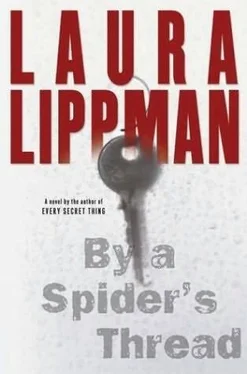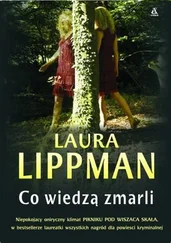STEREOTYPES PERSIST FOR A REASON, TESS DECIDED ON her way back to Baltimore, and it wasn't wrong to rely on them when they were helpful. On her cell phone, she called the Associated, a nonprofit umbrella group of Jewish charities, assuming it was far more likely to keep complete, accessible records than the state Department of Corrections was. Perhaps this was unfair to state government workers, but her generalization paid off in this case. The names and addresses Tess wanted were arriving at her office via fax machine before she crossed the Bay Bridge.
Eight men had been given permission to participate in the prison outreach program when it started twelve years ago, and-give Boris credit for telling the truth here-he and Yitzhak were the only ones who were still guests of the state. Of the remaining six, four had Baltimore addresses, while one was in Grantsville, and the sixth, Nathaniel Rubenstein, had no address at all listed with parole and probation. Still, it was the Grantsville address for Amos Greif that puzzled Tess. The town in far-western Maryland was best known for its model Amish village and the blueberry pancakes at the local restaurant. It seemed a strange choice of residence for a Jewish ex-con who specialized in grand theft auto.
"Amos was from Cumberland," Mark Rubin said, studying the list. He had come straight to Tess's office from work, so he was wearing his usual dark suit, although the days continued almost Indian-summer warm. Tess recalled he had been wearing a crisp white shirt and khakis with a knife-sharp crease while hanging around the house Saturday night. She wondered if he even owned a pair of blue jeans. Was his formal dress the result of his religion or his work? Could God really care what anyone wore? Adam and Eve had started out naked.
"Cumberland, Grantsville, it's still more West Virginia than Maryland. And it's not a place you expect to find a Jewish car thief."
"Cumberland had a… I wouldn't say thriving , but important, close-knit Jewish community going back to the nineteenth century. The local department store, Rosenbaum Brothers, was the biggest store of its kind between Baltimore and Pittsburgh."
"You're kidding me."
"We didn't all live in crowded ghettos, Tess. The joke about Jews in small-town Maryland is that they settled wherever the mule died. Remember Louis Goldstein, the former comptroller? When Louis was born in Prince Frederick, the mohel had to travel to the bris by ferry from Baltimore."
"Point taken," she said, trying not to yawn. "You can find Jews anywhere in Maryland. In small towns and big cities. In prisons and the state's highest political office. Hey, thanks to Marvin Mandel, we know that Jews can achieve both in the same lifetime."
"Marvin was pardoned," Rubin said, a slight defensiveness creeping into his tone. "And he was no more a crook than the governor before him, that Greek Agnew."
"Well, maybe someone will get around to pardoning these gents one day, and then they, too, can find new careers as lobbyists and lawmakers. Meanwhile, I'm more curious to know if you think there's one man on this list that I should be focusing on for any reason."
Rubin perched on the corner of the office sofa that Esskay was willing to allot him. The dogs had begun to warm to him, a somewhat reliable assessment of a person's character. Of course Esskay was a biscuit slut, falling for anyone who gave her a treat, but even the more reserved Miata perked up when Rubin came around.
"Amos was an interesting case. He was born to Jewish parents but orphaned as a teenager and raised by a local farmer. No religious education whatsoever, but a real head for business. If he had applied his corporate model to more legal forms of revenue, he'd probably be running a Fortune 500 company today."
"You talked about business?"
Rubin shrugged. "It's a great commonality for men. That and baseball. Now, Larry Kirsch was a drug addict who ended up dealing. Another guy with a head for the wrong kind of business. Very shrewd, always working an angle. Mickey Harvey-that was a sad one. He was a civil engineer, rear-ended another car, killing a child in the backseat. He left the scene in a panic-he had been drinking at the baseball game-and the judge decided to make an example of him. Just a normal guy otherwise."
"A normal guy with a drinking problem." Despite her affection for a nice glass of wine and the occasional martini-or perhaps because of it-Tess was sanctimonious when it came to drinking and driving.
"Now who sounds all Old Testament?" Rubin's tone was light, almost teasing. "I felt bad for the guy. He wasn't a drunk, he probably wasn't even legally intoxicated when he had the accident. He drove an SUV, and the car he hit was one of those flimsy sedans with virtually no rear end. Change a single variable in the scenario-one less beer, a longer game, different vehicles, a different route home-and he may have gone the rest of his life without hurting anyone. Every time I saw Mickey Harvey, I was reminded how life can change in a single moment."
Rubin broke off, perhaps remembering how quickly his own life had changed because of variables that no one could identify.
"What about the others?" Tess pressed him, if only to distract him.
"They're less vivid to me. Scott Russell ran one of those fly-by-night home improvement companies, specialized in ripping off little old ladies. This generation's version of a tin man, a run-of-the-mill gonif. Danny Katzen was a burglar who beat up an old woman who had the bad luck to be at home when he broke in. An unrepentant thug, just a waste of space and protoplasm. I liked him the least."
"And Rubenstein?"
"Doesn't matter."
"How so?"
"He's in federal prison. That's why there's no address listed. He served a state sentence for receiving stolen goods, then ended up with federal time for a sophisticated fraud operation. Besides, although he signed up for the group, he never participated." Rubin allowed himself an exasperated sigh, shaking his head at the memory of Nathaniel Rubenstein. "A bright man, too. If only he had been a patient one."
"What does patience have to do with it?"
"He ran a small chain of clothing stores. It was a great idea, although a little ahead of its time. You know those Scandinavian stores that sell trendy clothing at low prices?"
Tess didn't, but nodded anyway, so Rubin would finish his story and get back to the subject at hand. The guy was clearly queer for the retail business in all its forms.
"Nat tried something similar fifteen years ago, but he was undercapitalized and he expanded too quickly. He took shortcuts, taking some shipments he knew were of dubious provenance. And when he had cash-flow problems, he used his access to credit records to scam people with bad credit. He'd tell them he could get them a card with a thousand dollars limit for a service fee of a hundred and fifty dollars. Then he mailed them an application and some coupons and pocketed the fee. That's how he ended up doing federal time."
"How do you know so much about him if he didn't participate in the group?"
"Baltimore's Jews live in a small village, especially those of us in the clothing business. There's lots of gossip we keep to ourselves, so people in the city at large won't cluck their tongues. It was shocking, seeing Nat go to prison."
"Did you know him before he went in?"
"After a fashion." Rubin gave her a lopsided smile. "The pun was unintended."
"Only it wasn't really a pun," Tess said.
"Excuse me?"
"It was a play on words, but it wasn't a pun, which involves changing a word in some way so it takes on a double meaning." It was fun, correcting Rubin for once. "You know, Mexican weather report-chili today-"
"Hot tamale. Groucho Marx." He moved his eyebrows up and down, wiggling an imaginary stogie. "I'm a huge fan. I tried to get Isaac to watch the films with me, but they didn't seem to resonate with him. He has trouble relating to black-and-white films. He asked me once if the world used to be black and white."
Читать дальше












